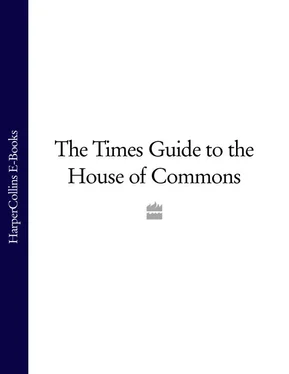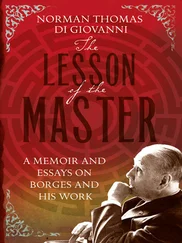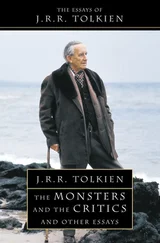The styles of the Tory and Labour campaigns differed starkly from the start. As Mr Cameron tore round the country on a leased private plane, Mr Brown made political capital out of financial necessity, travelling by rail in standard class. Labour had raised less than half the Tories’ £18 million war chest, and had spent much of it during the phoney war since the start of the year. Once at his campaigning destinations, Mr Brown rarely delivered speeches, preferring to meet small groups of voters in supermarket canteens or the living rooms of Labour supporters, fuelling questions about whether he was reaching swing voters. Mr Cameron, boasting a campaign team with a sharper eye for “optics”, was pictured repeatedly, sleeves rolled up, in warehouses or stock rooms surrounded by workers and clearly visible logos of well-known brands.
The contrast carried through to their manifestos, in which Labour offered a “smarter” State, the Tories a smaller one. Mr Brown unveiled a traditional-looking pitch in a newly built and soon-to-be-opened wing of a Birmingham hospital. It promised to tailor public services to people’s needs, giving them guarantees on rights of redress against schools, hospitals and police forces if services failed to reach certain standards.
The Tory manifesto was unusual and innovative, and not just for being presented in the semi ruins of Battersea power station. A hard-backed blue book on A5 paper titled An Invitation to Join the Government of Britain , it urged people to take more control over their workplaces, children’s schools and how they are policed and ruled, offering a glimpse of life in what Mr Cameron billed the Big Society.
Mr Clegg chose the City of London as his launch pad, an attempt to show that the party often criticised for having uncosted policies was serious about its finances. The signature policy was to raise the starting threshold for income tax from £6,500 to £10,000, costing £17 billion. The document even included tax tables at the back to show that the sums added up, calculations immediately disputed by Labour and the Tories.
The choice between an empowered individual in a smaller Tory State and a smarter Labour State that provided service guarantees offered the central intellectual dividing line, although both sides fought surprisingly shy of their offering on the stump. Instead, the debate revolved around the economy, in particular whether the £6 billion of immediate savings the Tories were proposing to make in Whitehall, and subsequently used to ease Labour’s proposed rise in national insurance contributions, would help or hinder the recovery.
So far, so normal. The campaign was turned on its head from the moment Mr Clegg stared into the cameras of the first TV debate, hosted by ITV in Manchester, and told the 10 million viewers that he was offering something other than business as usual. Presenting himself as a fresh alternative to the tired old parties he was fighting, he spoke crisply and directly about bringing fundamental change to politics. Mr Brown, sensing the early mastery of the medium shown by Mr Clegg and keen to isolate Mr Cameron, used the words “I agree with Nick” half a dozen times. (The following day, the phrase was appearing on Lib Dem badges, posters and banners.) But Mr Clegg would not be caught in a Labour bear hug. Mr Cameron, expected to shine on a stage apparently made for the ease and informality of his communication skills, tried to look prime ministerial but instead appeared stiff and awkward.
Mr Clegg ran away with the verdict of viewers. In the course of 90 minutes he had wrested from Mr Cameron the mantle of change, in which the Tory leader had cloaked himself for the past four years. Within days, the Lib Dems shot up ten points in the polls. One found Mr Clegg to be the most popular political leader since Churchill. And so the game changed. Although campaigning continued, the oxygen sucked up by the first debate in effect suspended the state of the race while all sides waited for the second debate. Hosted by Sky in Bristol, it saw Mr Cameron recover some of his poise. Mr Clegg, despite his first success, refused to play safe, showed that his first offering was no fluke and cemented his place as a contender.
Shortly before the third debate, Mr Clegg, in an interview with The Times , said that the Lib Dems had replaced Labour as the progressive force in politics and that the election now boiled down to a two-horse race between him and Mr Cameron. Two weeks previously such an assertion would have been laughed out of court. With many polls showing the Lib Dems nudging ahead of Labour, it now carried weight.
Mr Clegg’s success, or Cleggmania to give it its official media term, forced Labour and the Tories into tactical switches. They both turned their guns on Lib Dem policies, such as an amnesty on some illegal immigrants, softer sentencing and a refusal to guarantee the future of Britian’s nuclear deterrent. The Tories did so with menaced warnings whereas Labour, with an eye on the possibilities of a Lib-Lab deal if voters returned a hung Parliament, were less harsh.
Mr Brown also re-wrote his personal campaign. Labour strategists, faced with selling a leader who was unpopular with voters, had kept the Prime Minister to a routine of small meetings largely behind closed doors. It had left Mr Brown frustrated. He would spend the final ten days meeting more “real people” and making more speeches. The new style made a calamitous start. In Rochdale, Mr Brown was accosted by a Labour-supporting grandmother, Gillian Duffy, who took him to task on issues ranging from student fees to immigration. She walked away happy to have had her say and quietly thrilled to have met the Prime Minister. He got into his official car and branded the mild confrontation a disaster, called her a bigoted woman and blamed an aide. The remarks were picked up by a radio microphone he had worn for his walkabout and had not yet taken off.
For the rest of the day Mrs Duffy became the centre of an extraordinary maelstrom. She was devastated to learn of Mr Brown’s remarks, which were played repeatedly on news channels. They were doubly damaging: Mr Brown had appeared deaf to the concerns of millions of voters on immigration; and his apparent instinct to blame aides underlined a wider perception of character flaws. Over the next six hours, Mr Brown apologised six times. He tore up his schedule, abandoned preparation for the following day’s final debate and returned to Rochdale where he spent 40 minutes in Mrs Duffy’s living room trying to explain himself.
The third and final debate, hosted by the BBC in Birmingham, was Mr Brown’s last chance to turn the campaign around. Labour aides had negotiated successfully for its theme to be the economy, Mr Brown’s perceived strongest suit. Although he put in his best performace, he again trailed in third place, according to snap polls. In the final days, he was at his best, delivering his most passionate speech on social justice to an audience in London. Some wondered where this fiery campaigner had been for the previous three weeks, and why he had not been let loose. Others concluded that he was able to let himself go because he suspected he had lost.
On the eve of polling day Mr Cameron campaigned through the night, a self-consciously arduous bus trip from Scotland to Bristol via Grimsby where he met night workers in depots and sorting offices along the way. Such a gruelling final lap was hardly the best preparation for what was to follow.
Polling day itself was marred by near tragedy when Nigel Farage, an MEP and the former leader of the UK Independence Party, escaped with his life from a light plane crash after a campaign stunt went disastrously wrong. The aircraft carrying Mr Farage, who was standing against the Speaker, John Bercow, in Buckingham, was trailing a 15ft banner that read: “Vote for your country – Vote UKIP”. The banner became entangled with the plane’s tail about 10ft above the ground, causing it to nosedive. Mr Farage said that he and his pilot, Justin Adams, had had a miraculous escape.
Читать дальше












